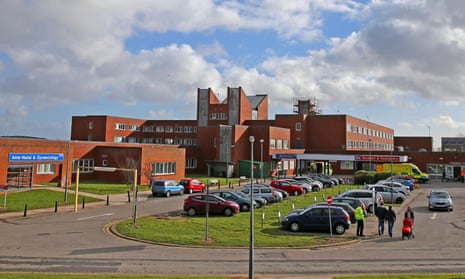The idea that Britain might have had enough of experts fast became one of the cliches of last summer’s Brexit campaign. But when it comes to matters of life and death we crave the reassuring wisdom of experts. Even those of us who are frantic Googlers of symptoms deep down just want to be firmly told what the problem is and advised on the best course of action.
The very nature of what frontline professionals in our public services do – diagnosing us, delivering our babies, teaching our children – means they have enormous power over our lives. But what if they are not quite as expert as we would like to believe? After all, they’re only human. Insights from psychology tell us that we rarely make decisions based on rationally weighing up all the evidence – we simply don’t have the time. Instead, our brains rely on short cuts: gut feeling and instinct drive many of our choices, opening the door to the influence of personal values and irrational bias.
On the whole, these mental short cuts do fine. But the tragic and avoidable baby deaths that occurred in the maternity services at Furness general hospital, part of Morecambe Bay NHS Trust, show how dangerous they can prove in the profoundly important decisions made by health professionals. The independent report into the deaths makes distressing reading. It catalogues a series of terrible failings, including the fact that some midwives at the trust pursued natural birth, without any medical intervention, in the words of one midwife “at any cost”. The investigation team heard accounts of how dogmatic opposition to medical intervention meant obstetricians were kept from intervening or even assessing women when problems occurred. This cost some babies their lives.
Even more shocking than the report itself has been the response from the midwifery profession. It should have been a “never again” moment, prompting a fundamental review of how far and deep these attitudes run. But the response from its leaders has been defensive. And a review of hundreds of labour-related baby deaths and serious brain injuries in 2015 has revealed serious issues in the local reviews carried out into those cases, including the fact that only 7% used an external expert. The truth is we just don’t know the extent to which an ideological commitment to natural birth is endangering babies and mothers.
But it won’t be limited to Morecambe Bay. The health secretary, Jeremy Hunt, has just ordered another review into a series of suspicious baby deaths at Shrewsbury and Telford. There are familiar warning signs: several parents have said they felt under pressure to have a natural birth. Senior midwives have exalted the fact they have one of the lowest caesarean-section rates in the UK and spoken of the “department-wide ethic of natural childbirth”.
Natural childbirth may be preferable for many women, but for some it will be dangerous. Generic rules of thumb – non-medical is best – can morph into the dangerous practice of faithfully avoiding intervention for its own sake, against the medical evidence, rather than achieving the best outcomes for women and babies. And loaded terms such as “obstetric violence” are far from uncommon within midwifery.
It is not the only profession tainted by dogma. In some parts of social work, the idea we take too many children into care is a common refrain: numbers are at record levels and children in care suffer from terrible outcomes, or so the argument goes. But while numbers have risen in the last four years, much of the increase is accounted for by unaccompanied children seeking asylum and the proportion of children in care has remained broadly flat.
There is evidence that being taken into care can be a profoundly positive intervention for children being abused and neglected. But some children are left in these situations for too long, subjecting them to unacceptable risks.
I have no end of admiration for children’s social workers. They voluntarily take on responsibility for making one of the hardest decisions the state ever has to make: when should a child be taken into care? But what if an understandable desire to believe the best of people facing difficult circumstances – a misplaced optimism in their capacity to change their ways against the odds – is getting in the way of protecting children? One review of more than 100 cases found that three-fifths of children who were returned to the care of their parents were neglected or abused again within two years.
In teaching, the idea that we are hard-wired to learn in a particular way, and so children can be categorised into different types of learner who respond best to different teaching styles, has been around since the 1970s. Yet there is no evidence for it. That didn’t stop education leaders in Knowsley categorising 80% of children as “kinaesthetic” learners and redesigning their schools around the tactile learning activities they supposedly respond to best. The hindsight is heartbreaking. A decade later, there’s not a single good or outstanding secondary school in the borough. This isn’t the only reason, but it’s undoubtedly a factor.
Too often, professionals and outsiders who try to challenge some of this “siloed” ideology get shouted down. James Titcombe, one of the parents whose baby died at Morecambe Bay and a tireless campaigner for reform, says he gets contacted by doctors and midwives who share his concerns around natural birth dogma but say they fear speaking out. Another clinician has written of the bullying faced by doctors who try to challenge midwives. The response to human mistakes is too often a very human battening down of the hatches.
We should have nothing but respect for the awesome, life-changing – but potentially life-destroying – responsibilities that our midwives, teachers and social workers take on. But those responsibilities place them under a far greater duty to recognise and address their foibles than the rest of us. We’re all human. But some of us can less afford to be so than others.
- This article was amended on 18 May 2017. It originally indirectly attributed the idea that Britain has had enough of experts to Michael Gove. The full quote from Gove was, in fact: “I think the people in this country have had enough of experts from organisations with acronyms saying that they know what is best and getting it consistently wrong.” The article has been amended to reflect that.

